“There's phrase that… 'A man is made of all men. He is equal to all and all are equal to him'.”Strategia del ragno The Spider's Stratagem] (Bernardo Bertolucci, 1970)
Apr
19
melon
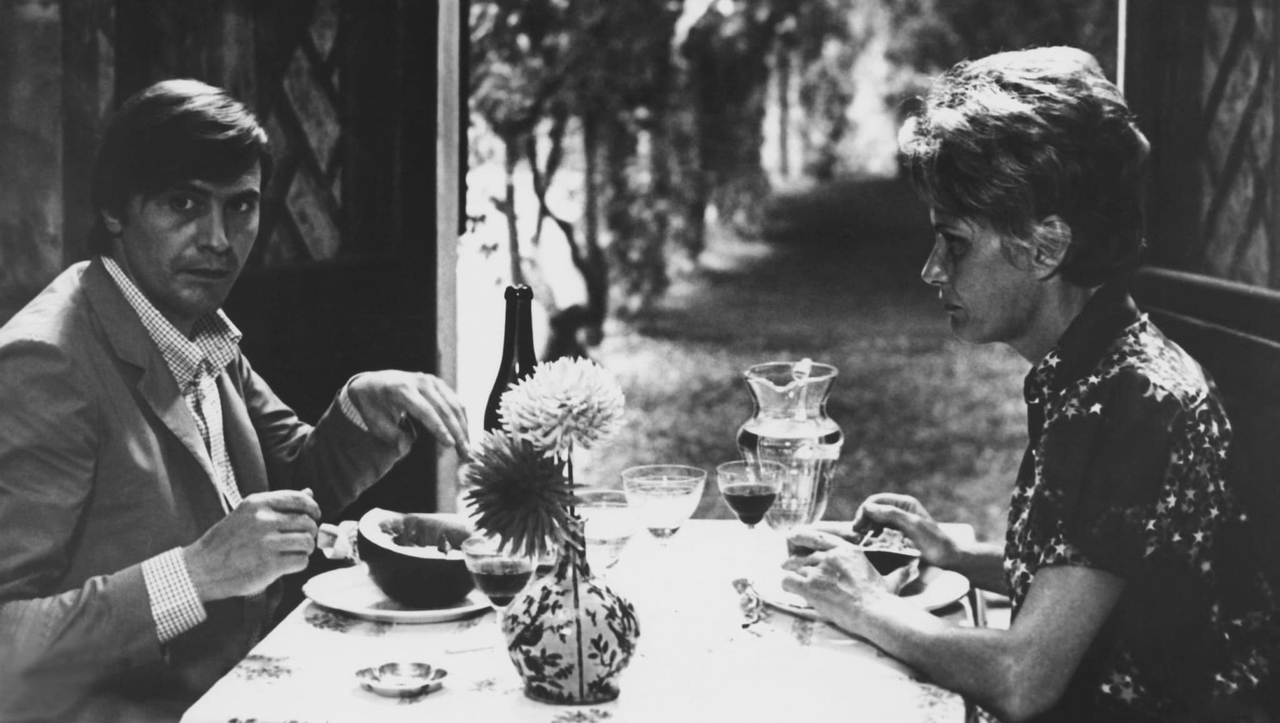
Athos Magnani (Giulio Brogi) and Draifa (Alida Valli) sharing a meal. There's a carafe with water, a small vase with two flowers, wine glasses, and half a melon. Athos looks up, past us, towards something. DPs: Franco Di Giacomo & Vittorio Storaro.
– Athos Magnani
drama
Série noire (Alain Corneau, 1979)
Apr
9
canned pilchards

Franck Poupart (Patrick Dewaere) about to dig into a can of pilchards. A pile of French women's magazine “marie claire” is next to him on an otherwise bare coffee table. DP: Pierre-William Glenn.
Raggare! [Blackjackets] (Olle Hellbom, 1959)
Apr
3

Bibban, a beaming blonde (Christina Schollin) in a petticoat, at a small bar table smoking a cigarette. There's an half-empty glass and a full ashtray next to her. Just offscreen the object of her smile: a smartly dressed man reaching for his glass. DPs: Frank Dalin & Bertil Palmgren.
“Trouble is, she likes everything. She's always happy. She desires nothing, envies no one, is curious about nothing. You can't surprise her. She doesn't notice the humiliations, though they happen to her every day. It all rolls off her back like some waterproof material. Zero ambition. No moral code. Not even a whore's love of money.”Io la conoscevo bene [I Knew Her Well] (Antonio Pietrangeli, 1965)
Apr
2
cocktails
.png)
A lone Roberto (Enrico Maria Salerno) at a lively cocktail party in Rome's hypermodern EUR district. DP: Armando Nannuzzi.
– the writer
“Empires, the past – they're beyond me! Will things change for the better? Will bums like these disappear? And the slums too? Come on. Tell us!”太陽の墓場 [Taiyō no hakaba / Grave of the Sun / The Sun's Burial] (Nagisa Ōshima, 1960)
Mar
31
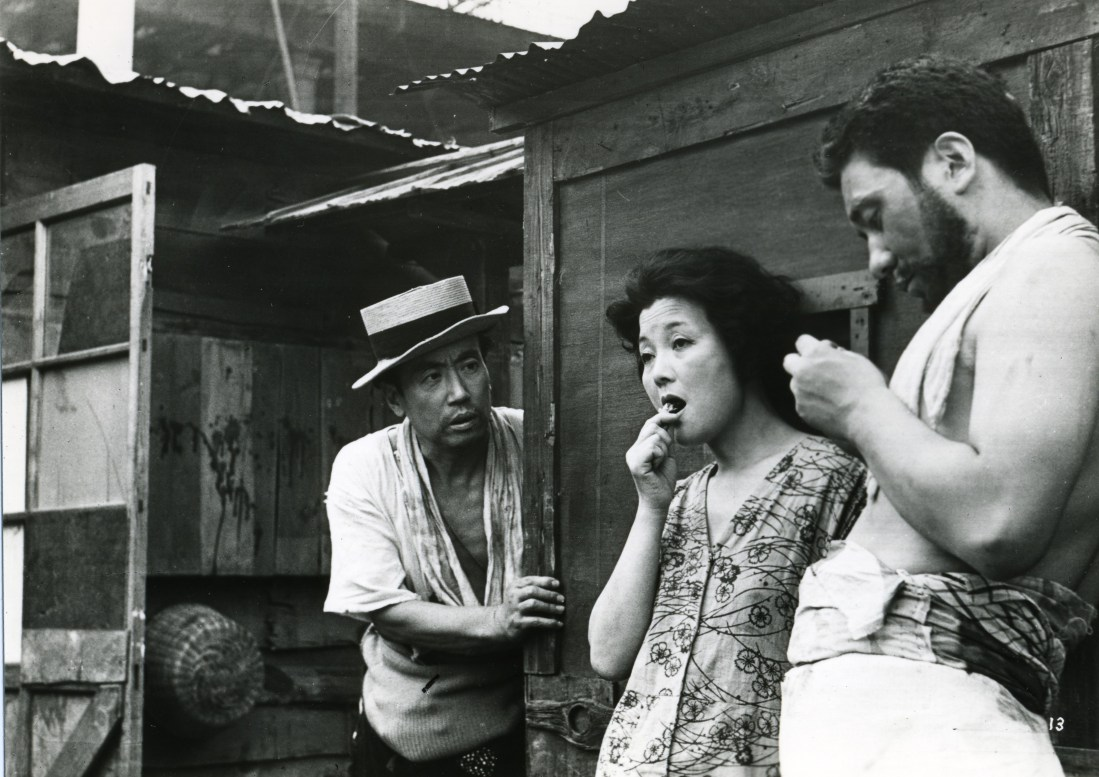
An empty-looking woman eats something while a scrawny man in a pork pie hat and dirty shirt eyes her. Next to the woman a bulking bearded guy, cleaning his nails. DP: Takashi Kawamata.
– Hanako
Salesman (Albert + David Maysles, Charlotte Zwerin, 1969)
Mar
29
breakfast
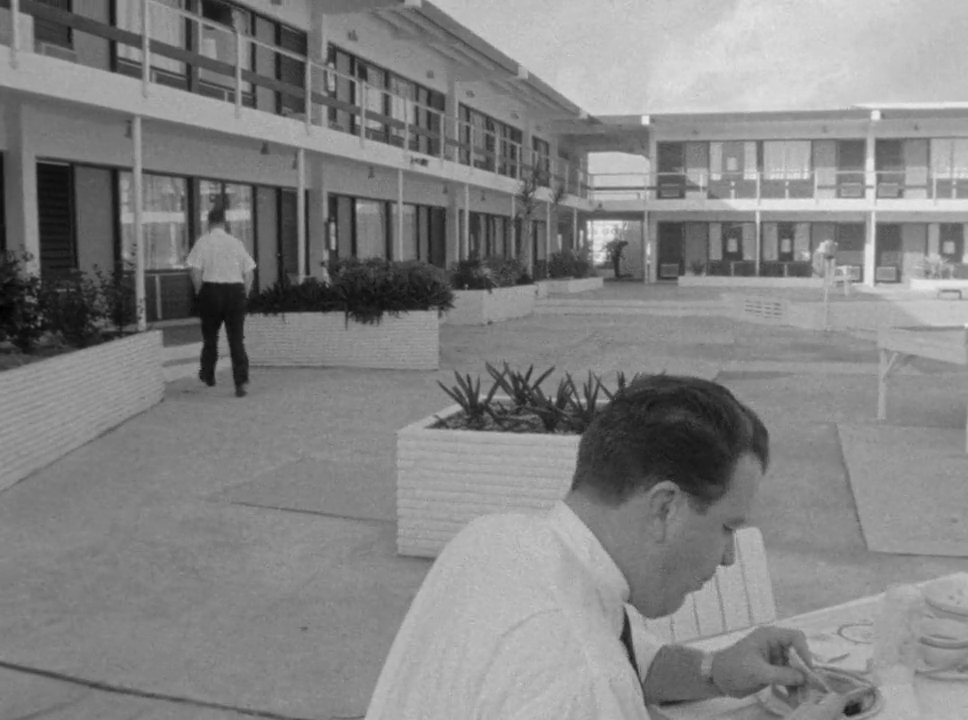
Bible salesmen enjoying breakfast at a soulless motel. DP: Albert Maysles.
Watched on Good Friday.
Los hermanos Del Hierro [My Son, the Hero] (Ismael Rodríguez, 1961)
Mar
19
revenge
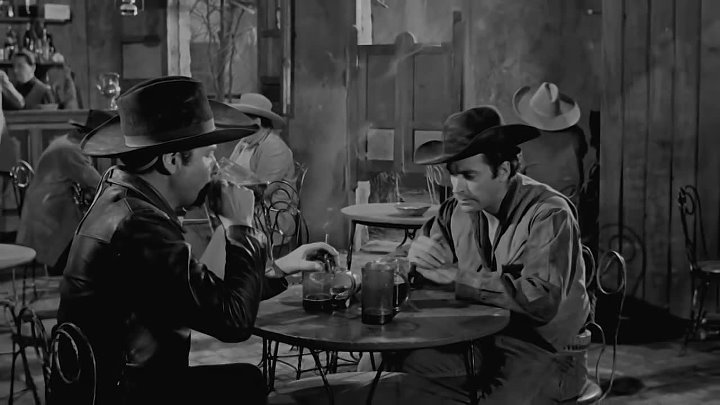
Brothers Martín (Julio Alemán) and Reynaldo Del Hierro (Antonio Aguilar) drinking in a cantina. Reynaldo, the older one, looks pensive while the younger takes a big gulp of beer. DP: Rosalío Solano.
A dish best served cold.
Привързаният балон [Privarzaniyat balon / The Tied-Up Balloon] (Binka Zhelyazkova, 1967)
Mar
17
bread
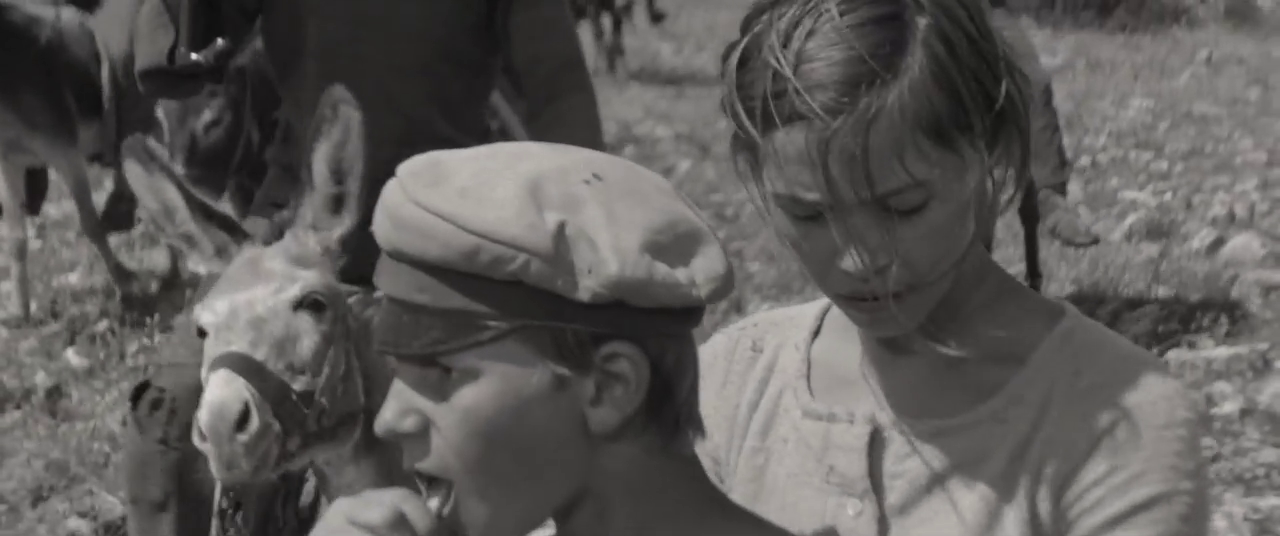
A boy and young woman (Janet Miteva) riding a donkey. The boy eats a handful while the woman faces downwards. There are several donkeys with riders behind them. DP: Emil Vagenshtain.
Max et les ferrailleurs [Max and the Junkmen] (Claude Sautet, 1971)
Mar
16

Lily (Schneider) and Max (Piccoli) at a small table decked with good food, good wine, and quite a few wads of cash. DP: René Mathelin.
“I look into the distance to the end of the world. Before the day is over, the end will come. First, time will tumble, and then the earth. The clouds will begin to race… the earth boils over; this is the sign. This is the beginning of the end. The world's edge begins to crumble… everything starts to collapse… tumbles, fall, crumbles and collapses. I look into the cataract. I feel an undertow, it draws me, it sucks me down. I began to fal, a vertigo seizes upon me.”Herz aus Glas [Heart of Glass] (Werner Herzog, 1976)
Mar
13
tea

A young maid (Sonja Skiba) holding a heavy tray with cups, plates, and various tea-related pottery. There's a somnambulist quality to her bearing. DP: Jörg Schmidt-Reitwein.
– Hias